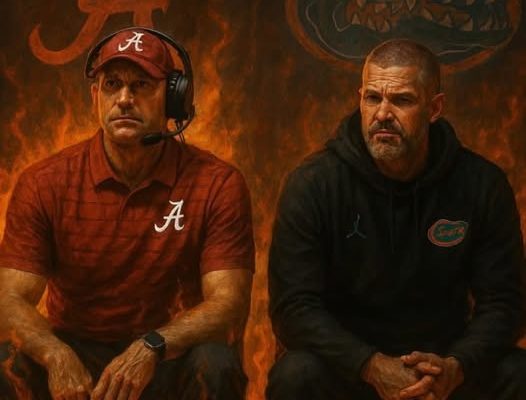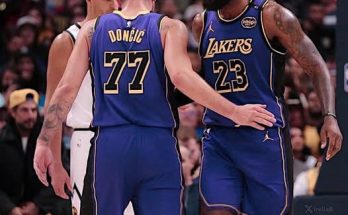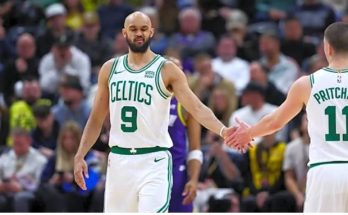Kalen DeBoer and Billy Napier are two names that are being tossed around college football circles with a certain intensity that can only be described as the pressure cooker of the sport. College football is not kind to coaches who stumble early, and both of these men find themselves staring at an uncomfortable reality just weeks into the 2025 season. The timing and manner of their teams’ performances could not have been more frustrating for their respective fan bases, as both Alabama and Florida have expectations that stretch far beyond moral victories, promising starts, or patience with excuses. Both are institutions where winning is not just a priority but the only real currency that matters, and in that sense, both DeBoer and Napier are carrying more weight than most second- or third-year head coaches might imagine. Their every decision is being scrutinized, their results dissected, and their futures whispered about in every corner of the sport.
For Napier, the season opened with what seemed to be a gift. A chance to set the tone against LIU, a program that was clearly overmatched from the first snap. Florida rolled to a 55-0 victory, a perfect showcase of offensive balance, defensive dominance, and energy from a home crowd that wanted desperately to believe this season would be different. On paper, everything looked as it should. Napier’s team imposed its will, young talent flashed, and there was a sense that maybe the Gators were beginning to turn a corner. But college football never lets anyone celebrate for long, and the very next week the Gators found themselves in the middle of a nightmare scenario. South Florida, a program that Florida fans expect to dominate every single time, came into the Swamp and left with an 18-16 victory that felt like a gut punch to the chest. It wasn’t just that Florida lost, it was how they lost. Sloppy execution, poor clock management, and an inability to put points on the board in critical moments made the Gators look unprepared, undisciplined, and unfocused. In a conference where the margin for error is already razor-thin, Napier watched his team give away a game they could not afford to lose.
That kind of performance is the sort that erodes confidence, both inside the locker room and in the stands. Fans who believed after Week 1 were suddenly left asking whether Napier has what it takes to truly restore Florida to its former glory. Recruits who might have been enticed by the opening-week dominance were surely watching as well, and perception in college football recruiting is everything. It’s not just about wins and losses on the field, but about the impression those wins and losses make in the living rooms of top recruits. Napier knows this. He is fighting not just for his job but for the chance to continue building a program he believes in. Yet patience is not a virtue commonly found in Gainesville, and the seat under him feels hotter with every disappointing misstep.
DeBoer’s challenge in Tuscaloosa was of a different flavor but no less damaging. Taking over after the legendary Nick Saban, the expectations were never going to be realistic in Year 1, but Alabama fans wanted to see a program that remained in the elite conversation. DeBoer’s first season had its ups and downs, but with a full offseason to implement his system, the second year was supposed to be where progress became obvious. Instead, the season began with a 31-17 loss to Florida State, and while the Seminoles are an undeniably talented program, the optics were brutal. Alabama had not lost an opener since 2001. That statistic alone highlights the towering standard that exists at the program. The loss was not simply a mark in the record column, it was a statement that Alabama was no longer the automatic powerhouse fans had come to expect. For DeBoer, that single game turned into a referendum on his ability to carry the torch.
The truth is, losing to Florida State is not the end of the world. They are a team loaded with speed, strength, and coaching ability. But at Alabama, the end of the world is defined differently. DeBoer is expected to win every game, particularly at home, and particularly in season openers where national attention is squarely on Tuscaloosa. That kind of loss immediately shifts the narrative from patience to panic. Fans question whether DeBoer’s offensive schemes truly translate to SEC football. Analysts debate whether Alabama still has the talent advantage that carried them under Saban. Every mistake feels magnified, and every subsequent game feels like a test of survival. DeBoer is being measured against a man who many consider the greatest college football coach of all time, and that is a bar few human beings can reach. Yet that does not change the reality he faces every Saturday.
Both Napier and DeBoer now enter Week 3 with not just games to win, but statements to make. They need not only victories, but convincing ones. College football is an emotional sport, and momentum matters almost as much as talent. Coaches under fire can sometimes rally their teams with an us-against-the-world mentality, but more often than not, pressure cracks the foundation. Florida must prove that the South Florida loss was a fluke rather than a sign of deeper problems. Alabama must show that their stumble against Florida State was not evidence of decline but simply a setback against a quality opponent.
The situations are eerily parallel in that both programs are dealing with the ghosts of the past. Florida fans remember the Spurrier years, the Meyer years, the times when the Gators dominated the SEC East and competed for national championships. Alabama fans, of course, are haunted by the shadow of Saban. Neither group of supporters is willing to tolerate mediocrity for long. In fact, mediocrity feels worse to them than outright losing seasons, because it signals stagnation. Coaches in these positions are often judged as much by the vibe around the program as by the win-loss record itself. Are they building confidence? Are they instilling discipline? Are recruits and players buying into the vision? These are the intangible questions that swirl around Napier and DeBoer right now, and the answers are far from certain.
If both men fail to stabilize their programs in the coming weeks, the conversation will inevitably turn to their futures. Athletic directors and boosters at these schools are never shy about making changes when they feel the program is slipping. Recruiting classes can evaporate overnight when doubt creeps in, and in the SEC, falling behind even for a season or two can have long-lasting consequences. Napier and DeBoer are coaching not just for the present but for the long-term health of their programs. Every game they coach could be interpreted as an audition for whether they deserve to continue leading these proud football machines.
At the same time, it is worth remembering that both coaches are dealing with challenges beyond their control. Roster turnover, injuries, NIL pressures, and the transfer portal have reshaped the college football landscape in ways that make building continuity harder than ever before. The patience that used to be afforded to coaches during rebuilds is practically nonexistent in today’s environment. Fans demand instant results, media narratives amplify every misstep, and the pressure to win is relentless. Napier and DeBoer are both competent football minds who have proven they can win at other levels, but success in the SEC is a beast unlike anything else in sports.
As fans and observers, it’s worth asking: are we too quick to judge? Do coaches need more time to truly establish themselves, or is the unforgiving nature of the SEC simply the reality that comes with the job? The debate is fascinating because it gets to the heart of what makes college football so intense. The passion of the fans drives the sport, but that same passion can sometimes create unrealistic demands. For Napier and DeBoer, the only way to silence those debates is by winning, and winning now.
What happens in the next few weeks will go a long way in shaping the trajectory of both men’s careers. A strong rebound could quiet the noise and restore belief. More struggles, however, could lead to restless fan bases pushing their programs to move in a new direction. Either way, these are storylines worth following, not just for fans of Alabama and Florida, but for anyone who loves college football and the drama that unfolds every Saturday.
Now, I’d like to hear your thoughts. Do you think Billy Napier and Kalen DeBoer deserve more time to prove themselves, or have they already shown too many red flags? Are the losses we’ve seen early in this season just bumps in the road, or are they signs of deeper issues within their programs? College football thrives on debate, and I encourage you to share your perspective. Should Florida and Alabama stay patient, or should they start considering what comes next? Drop your thoughts in the comments—I’d love to see where you stand.
Word count: \~1515



